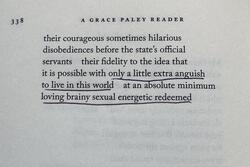Teaching Truth to Power
At the moment, I am a Jewish educator. It doesn’t necessarily fit in with what I thought my career path would look like, but it’s taken me to some incredible places and connected me with some of the most wonderful people I’ve had the pleasure of working with.
One of the best parts of working at Prozdor, the high school program at Hebrew College is that my boss almost always says “Yes” when I want to try something new. So when I came to him with the idea to run a Social Justice Leadership Certificate program for Jewish teens, he was into it right away.
Our first cohort has been small—three students—but they are young people with the capacity to look at the world around them and determine how to best help move Jewish communities towards looking at justice as its core tenet. We’ve studied the history of Jews and whiteness, the role of Jews in systems of privilege and power in the US, and the potential issues that arise from only focusing on social ACTION and not JUSTICE.
We seem to have forgotten that in order to help fix what we see as “broken” in the world, we have to understand how it broke in the first place. This can be uncomfortable, since sometimes us Jews were part of the problem.
It seems to me that Jews have lost touch with what it actually means to be disenfranchised, because so many of us are part of the fabric of American society. We are on TV, making movies, passing legislation, leading protests. Most of us benefit from white privilege, and have power in many forms. What we haven’t negotiated yet is what to do with our status.
So when I teach my class, I talk to my students about the experience of being privileged and Jewish in the United States. I encourage them to think critically about what it would mean to take a leadership role in the social justice movement of tomorrow. We’re selling our young people short if we think they can’t handle conversations around systems of oppression. If we ignore their capacity to both learn quickly and apply that learning in their everyday lives, we’re missing a chance to change the way that the Jewish community responds to groups outside of our own.
Watching my students join a group of teens at the West End House in Boston last week was a powerful reminder of what happens when we first show our teens what it means to live in a world that is unjust, and then allow them to build relationships that may further inspire them to use their power to lift up others. We left the building after an interesting and engaging conversation around gender identity (thank you Keshet for an excellent activity, as always), and all three students decided that even though class was cancelled next week, they were coming back. The impact of being around people who were both so similar and so different at the same time was not lost on them—they saw what strength there was, what benefit, in working as suburban teens alongside city teens to build the world as it should be.
We should all see such strength in our lifetimes.







Amazing work, Emilia. And thanks for the Keshet shout-out!